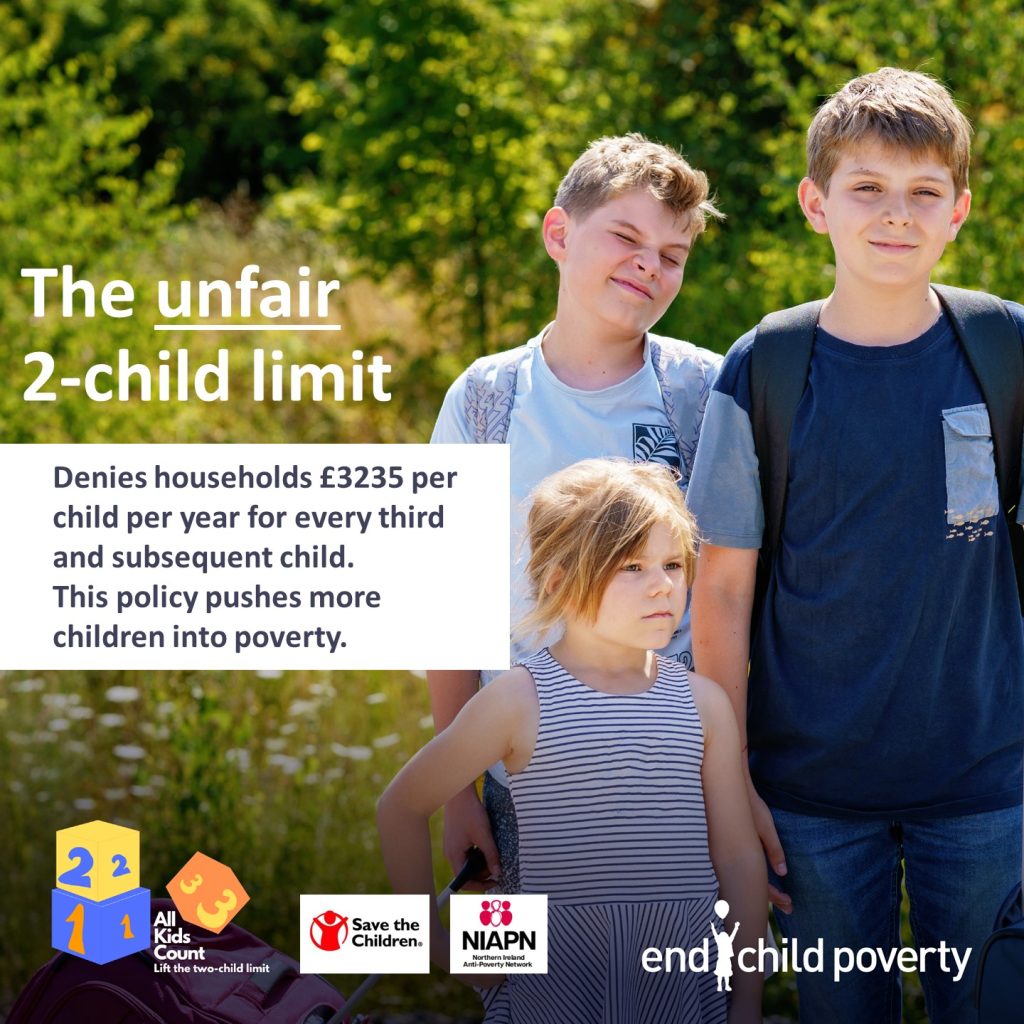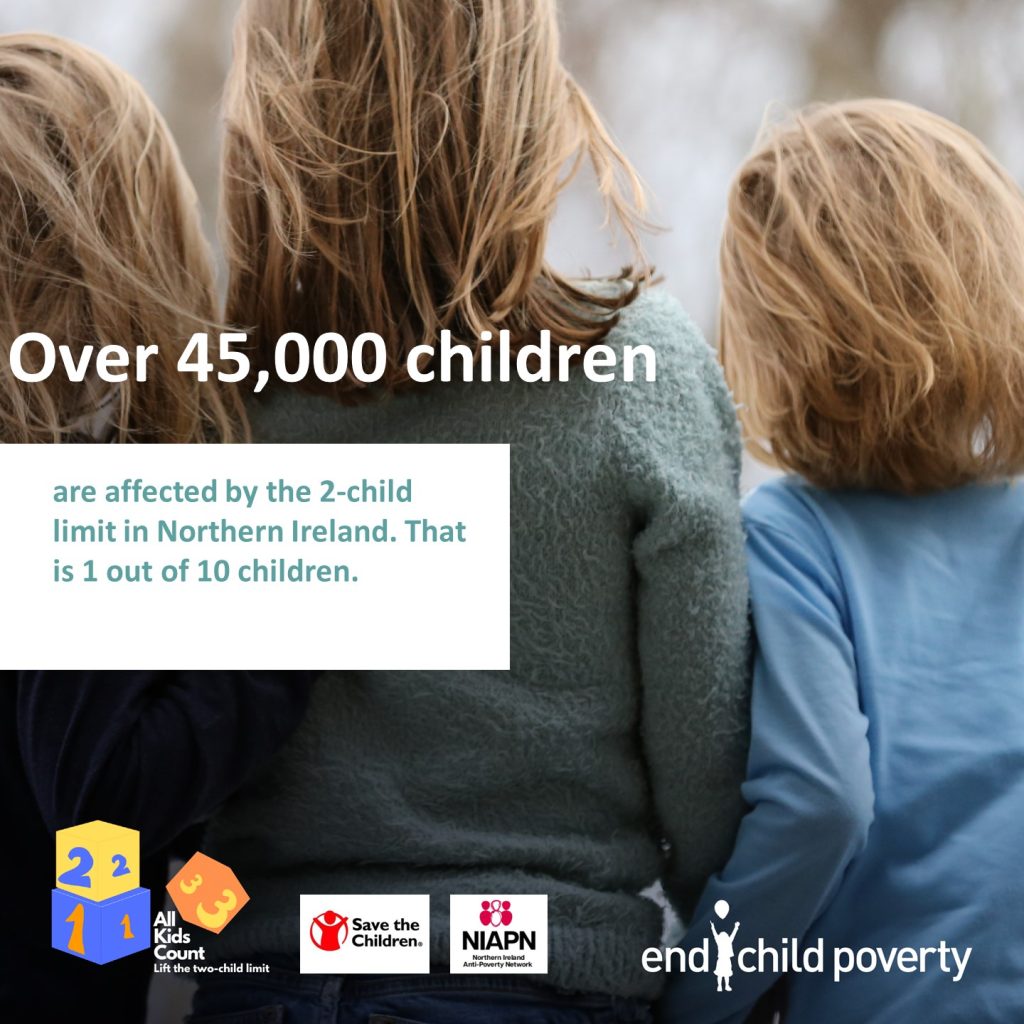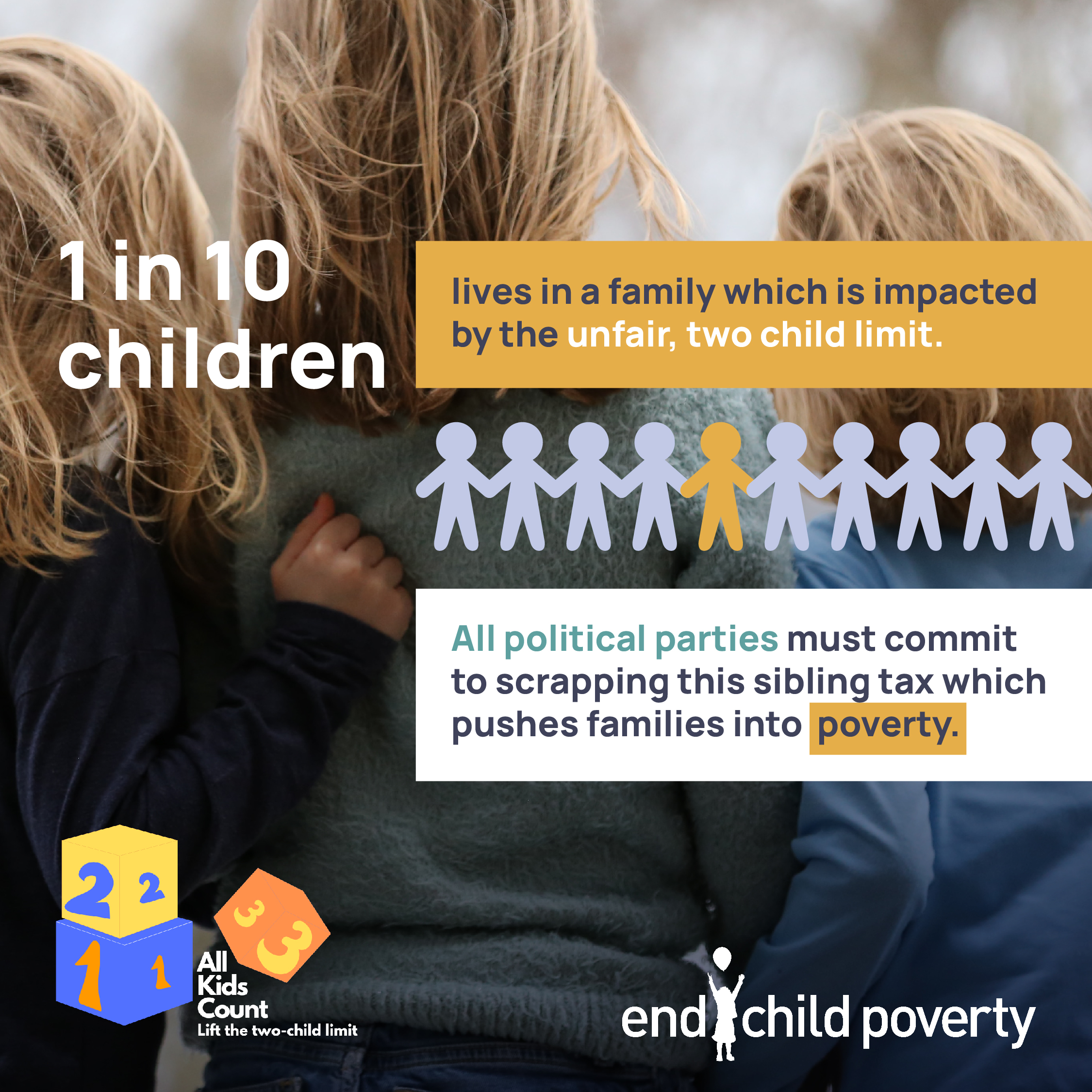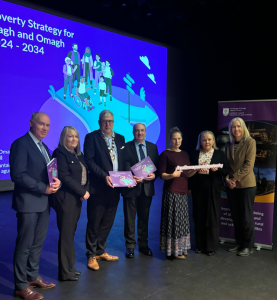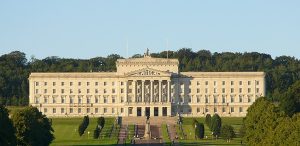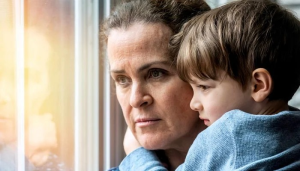1 in 10 children in NI are impacted by the 2-child policy
11 December 2023
By Becca Bor
With winter at its peak new data reveals 1 in 10 children in Northern Ireland live in households affected by the 2-child limit. This amounts to over 45 thousand children across the region. Figures obtained by the End Child Poverty Coalition, which the Northern Ireland Anti-Poverty Network and Save the Children are part of, show the areas with the highest percentage of affected families are in west and north Belfast.
It comes as figures gathered by Save the Children in a recent Lucid Talk poll show for the first time what the public in Northern Ireland think of the ‘sibling tax’ policy: 64% of people believe it is either very unfair or unfair. While 60% of people want to see it abolished.
While we’re all feeling the pinch due to the cost-of-living crisis, children who have 2 or more siblings face greater hurdles, with 42% across the UK living in poverty. The majority of families affected include at least one parent in work, or a parent who is disabled or a carer for another family member.
This autumn the Department for Communities published a report that reveals 68,000 children across Northern Ireland are living in absolute poverty. We know that 22% of children were living in poverty in 2021-22. These dire figures are the backdrop for a policy that is devastating for those who most need protection and support.
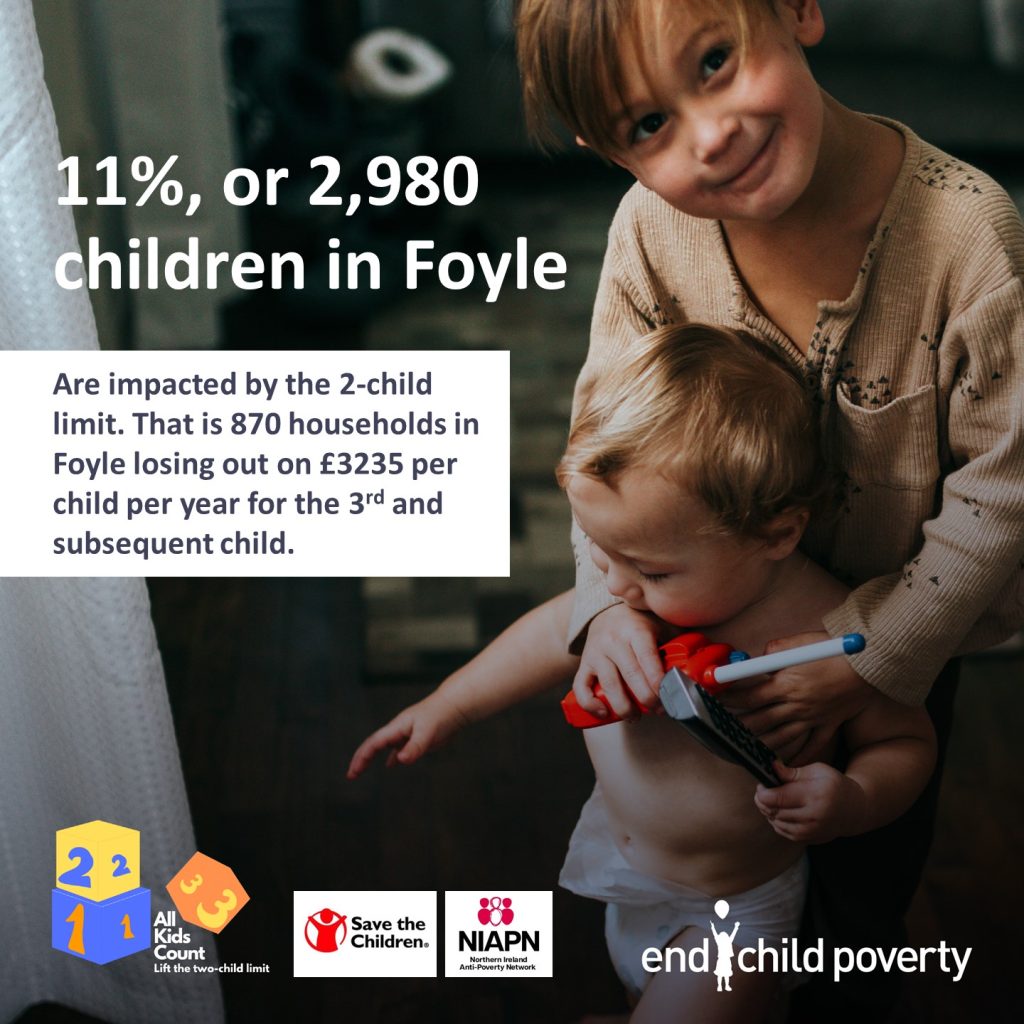
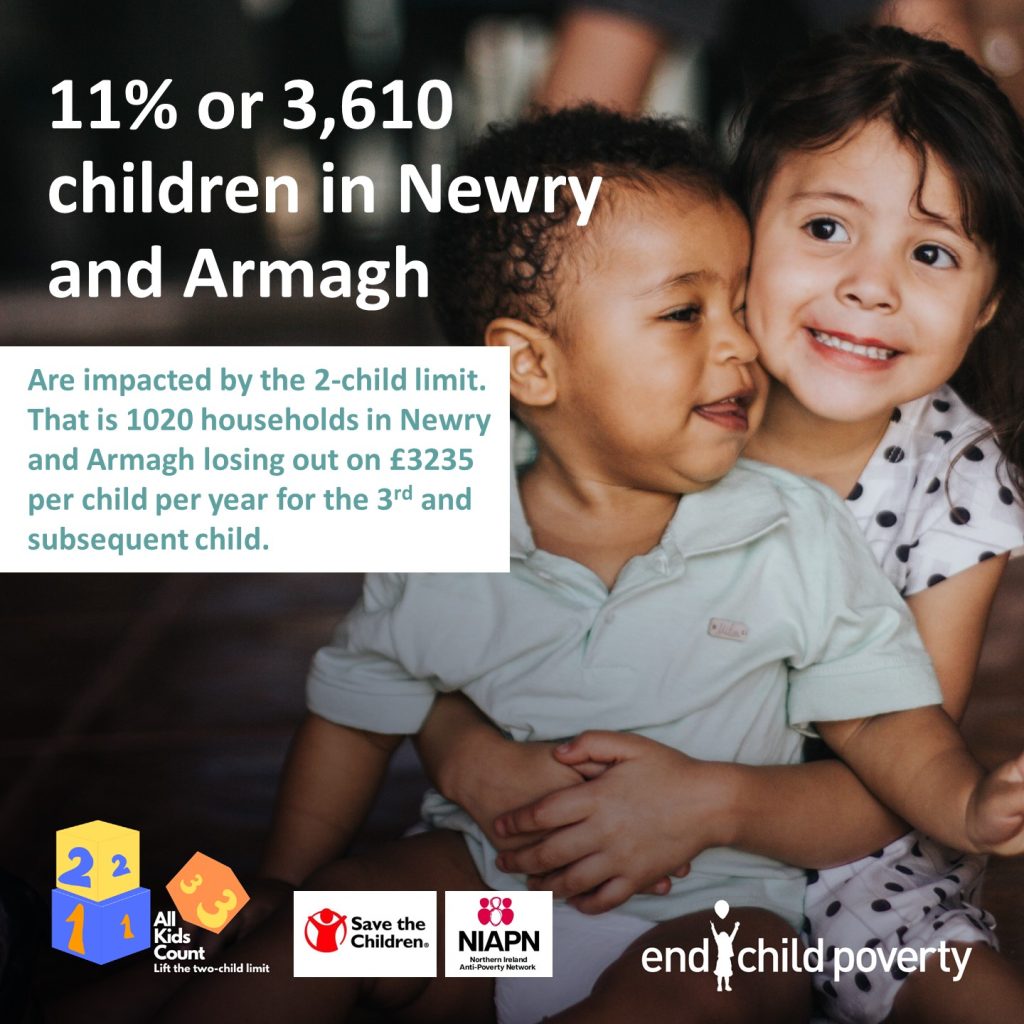
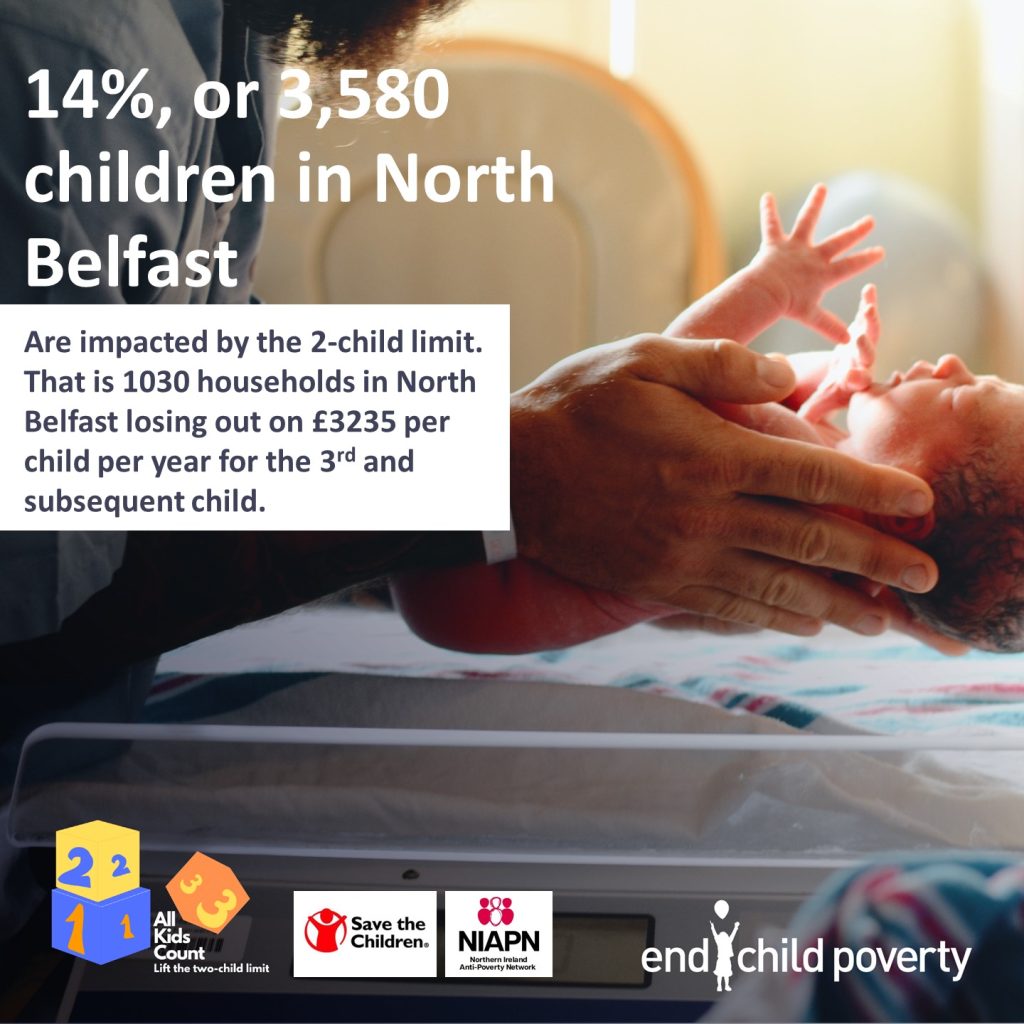
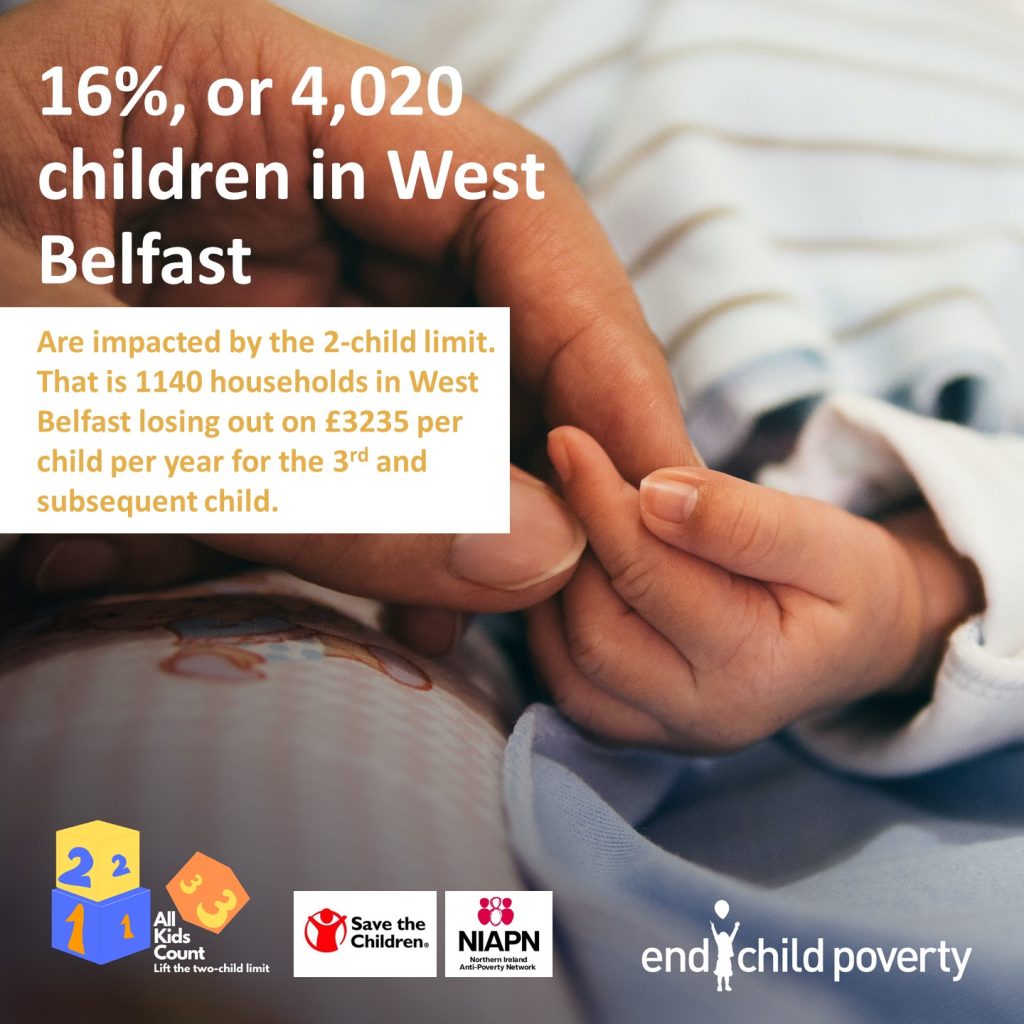
Key Stats:
- *16% of children in West Belfast live in households impacted by the two-child limit
- *14% in North Belfast
- *11% in Newry and Armagh
- *11% in Foyle.
*This correlates with child poverty figures for those areas -28.5% for west Belfast, 27.5% for north, 26% for Newry and Armagh and 23% for Foyle.
(The figures of children impacted by the two-child limit were obtained by the End Child Poverty UK after submitting a FOI to both HMRC and the Department for Communities.)
*64% of the NI population believe that the policy is either very unfair or unfair with only 29% seeing it as very fair or fair.
*60% of the NI population are in favour of abolishing it and only 30% are in favour of keeping it.
(These views were obtained from a recent Lucid Talk poll carried out by Save the Children NI)
The two-child limit affects families entitled to benefits who have had a third or subsequent child after 6 April 2017. These parents are denied £3,235 per year per child compared with families who have a third or subsequent child born before that date.
“It is completely unacceptable in 2023 that any child is living in poverty, let alone nearly a quarter of children. The two-child limit is unjust and unethical.
“We know that the public in Northern Ireland agrees. Our recent poll found that 64% of people believe that the two-child limit is unfair or very unfair. The government does not limit education or access to the NHS to the first two children in a family, so it certainly should not apply to the child payment for Universal Credit or Tax Credits.”
Naomi McBurney, Save the Children’s Policy and Public Affairs Adviser
The Welfare Mitigations Review has recommended mitigating the two-child limit through the introduction of a Welfare Supplementary Payment alongside the introduction of a “Better Start Larger Families payment”. Additionally, all the recommendations for the yet to be published Anti-Poverty Strategy, focus on policies that ensure children get the best start in life, which include scrapping the 2-child limit.
The Cliff Edge Coalition, a pressure group set up to ensure that those most vulnerable in society are protected from the harshest impacts of Welfare Reform, also campaign to scrap the 2-child limit.
The two-child limit is an attack on children, women and low-income families. This policy pushes more families into poverty, as it means the loss of over £62 per child per week for those families impacted. Scrapping the 2-child limit is a children’s rights issue, a women’s rights issue and a human rights issue.
Siobhán Harding, policy officer for the Women’s Support Network and member of the Cliff Edge Coalition
With the General Election in the UK next year, the NI Anti-Poverty Network and Save the Children are calling on all parties in Northern Ireland to commit to scrapping the two-child policy in Westminster. But in the meantime, we repeat our calls for political parties to restore the Executive urgently in order to mitigate against an unfair policy that will push many more children across Northern Ireland into poverty.
